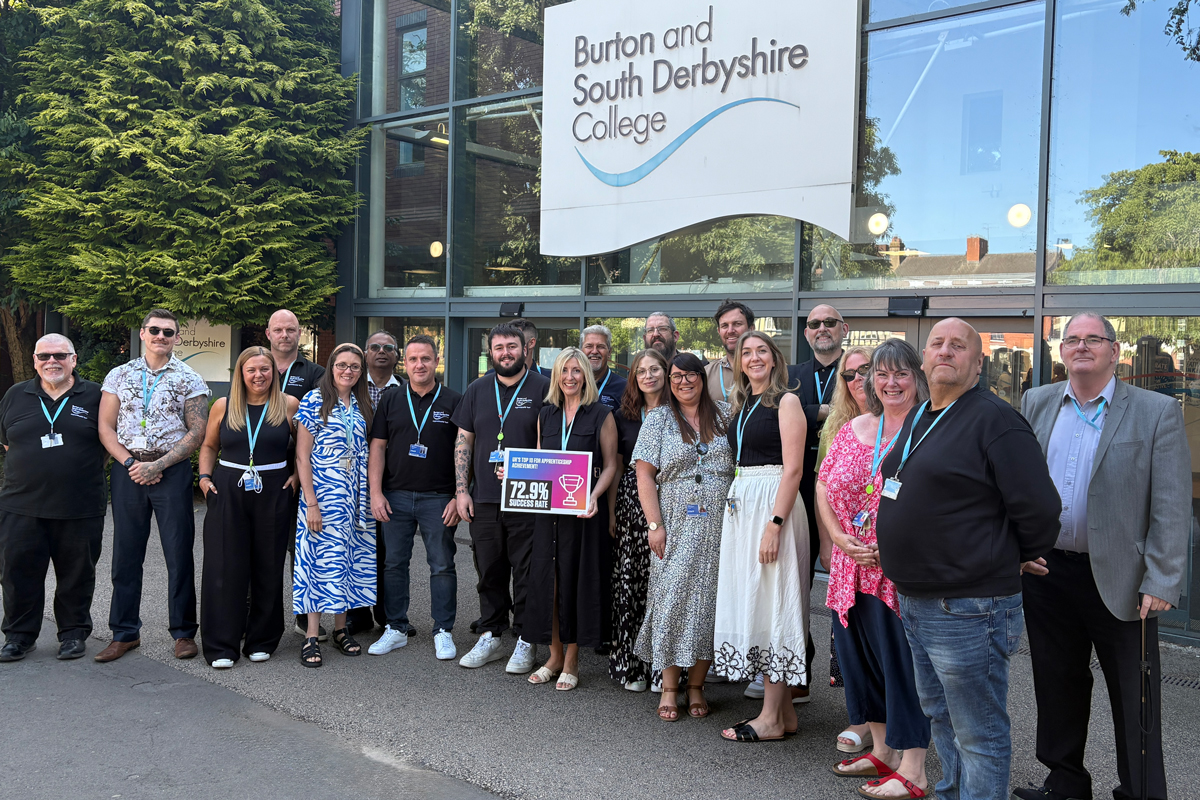Creating Futures: The Value of Creative Apprenticeships

As we celebrate #NAW2023, Pritti Shoker outlines the importance of apprenticeships for the arts sector.
At Risk: Our Creative Future, a report published by the House of Lords’ Communications and Digital Committee, places the creative industries among the world’s fastest-growing sectors, generating more value to the UK economy than life sciences, aerospace and the automotive industries combined. The study, however, also warns that the future of the creative industries in the UK hangs in the balance following an emphasis in schools on STEM subjects and perceptions of arts degrees as ‘low value’.
The trickle-down effect can already be seen in the continued decline in numbers of young people choosing arts and creative subjects at GCSE, A and Degree level. But if we fail to take action, the future looks even more bleak with the prospect of a depleted talent pipeline and a marked decline in the British creativity we’re admired for the world over.
As a publicly funded national arts organisation, the RSC has both a duty and a vested interest in mitigating against some of that risk. Not only nurturing future talent but also in diversifying on and off our stages. What we know through our work with 12 theatre partners and over 250 Associate schools in some of the country’s most structurally disadvantaged areas is that raw talent is not in short supply. What is lacking, however, is a combination of opportunity, an understanding of the value of the arts, and clear routes into the industry for people from all backgrounds to follow.
The RSC believes that everyone can benefit from the arts and creativity and is committed to its role as a Teaching Theatre. Inspired by the concept of Teaching Hospitals, the RSC’s Teaching Theatre concept is about investing in, supporting and training current and future generations of theatre artists and professionals to build a stronger, fairer and more diverse arts sector. In practice that means putting clear progression pathways in place and leveraging training, learning and research remits to ensure more people have access to quality arts experiences and the opportunity to see if a career in theatre and the arts is for them.
Through our Associate Schools Programme, we have already created opportunities for talented young people to train in acting, directing or working backstage through our Next Generation Act, Direct and Backstage programmes (which we now think of as our pre-apprenticeship work). And now we have an exciting and ambitious Apprenticeship Programme which aims to support 28 apprentices by 2024. Seven of these posts began this year, with a further four joining in April and the remainder in post by Spring 2024. We have also launched an Apprentice Hub at our Clore Learning Centre in Stratford-upon-Avon, offering a shared space for focused learning and networking for apprentices.
Our apprenticeships have been developed in close consultation with training providers Solihull College and University Centre and Stratford-upon-Avon College and Chichester College. All are salaried and over the course of one to four years offer young people the chance to earn whilst they gain Level 2 and Level 3 qualifications. On average apprentices spend the majority of their time at the RSC with a minimum of six hours a week for learning with their training provider. Longer-term we have ambitions to offer degree level apprenticeships as well as portable apprenticeships where candidates can gain skills, knowledge and experience from a number of different arts organisations as part of a shared training programme.
Apprentices come from a range of different backgrounds. We know that apprenticeships are a hugely important part of post 16 training and work opportunities, but they don’t only attract school leavers. In our current cohort, for example, we have a former policeman, a former primary school worker and a mum looking to get back into the workforce having taken time out of her career to raise a family and run a home. What they all have in common, however, is a desire to work in theatre and gain valuable industry experience, earning an income whilst they learn.
Although we welcome applications from anyone interested in taking a work-based path into a career in theatre, ultimately our mission is two-fold. We aim to facilitate better social mobility by focussing on people with under-represented protected characteristics and/or from lower socio-economic backgrounds and we want to create a more diverse and inclusive organisation for the future.
Theatre has historically been an industry where knowing the right people and/or having enough money to support yourself whilst you train has allowed you to get a foot on the ladder. One of the key drivers when developing our Apprenticeships Programme at the RSC was about giving young people who might not ordinarily consider a career in the arts sector a ‘way into’ of getting a job in theatre. We do this by tapping into our existing Associate Schools network in areas of structural disadvantage and we are also active members of the Government’s Apprenticeship Diversity Champions Network (ADCN). The ADCN is an employer-led network of over 90 member organisations who are all committed to taking action to widen participation in apprenticeships, champion diversity and support greater social mobility. Bringing together a range of like-minded stakeholders with those same shared objective has proven hugely beneficial. It’s a mutually supportive network where we can all learn quickly what works best, share best practice and offer each other practical advice and support.
And whilst our Creative Future is at risk, sharing our knowledge and working together to create the right conditions for a more diverse, inclusive sector is a major part of the solution. Far more than just about ticking boxes and fulfilling quotas, it is about building a happier, more creative, more representative and more productive workforce both behind the scenes and in the work we put on our stages. It’s a step change that isn’t going to happen overnight but networks like the ADCN and Apprenticeships Programmes like ours are steps in the right direction towards turning the tide, unlocking untapped potential and creating an environment where that talent can develop and thrive.
By Pritti Shoker, Apprenticeships and Training Manager, Royal Shakespeare Company.
Pritti Shoker has over 12 years’ expereince in the educaiton sector and has a passion for the development of apprenticeships and the evolving pathway. As the Apprenticeships and Training Manager at the Royal Shakespeare Company, Pritti understands the importance of research, design and learning experiences and how the combination can have innovative ways to excite and change the world. Previously, Pritti worked at research and education group WMG at the University of Warwick where she also had the privilege of contributing towards the continuing growth of the apprenticeship journey.
For more information about the RSC’s Apprenticeships Programme visit www.rsc.org.uk/apprenticeships











Responses